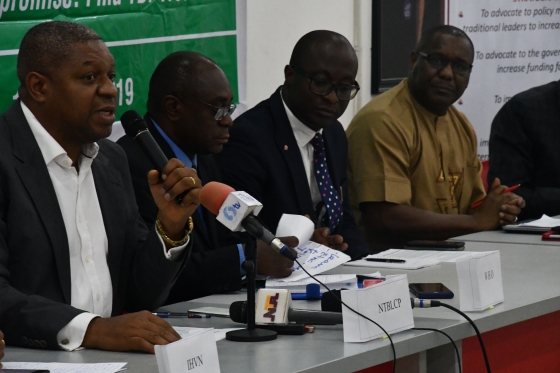According to PEPFAR, “Every day, around 1,000 adolescent girls and young women are infected with HIV. Girls account for 74% of new HIV infections among adolescents in sub-Saharan Africa”. This realization has increased the need to focus on protecting Adolescent Girls and Young Women (AGYW). As poverty is a major factor that places women in vulnerable positions, thus making them susceptible to risky behavior that can lead to HIV infection, USAID-funded HIFASS-LOPIN 3 project has incorporated Adolescent Girls and Young Women (AGYW) in its current implementation of the Orphans and Vulnerable Children Program, in order to provide young girls with the opportunity for grooming in goal setting, self-esteem, HIV prevention and management, care of their bodies, self-sufficiency, making good choices and generally becoming better individuals who will ultimately lead great lives.
Rachael Okon, a 20 year old resident of Calabar South Local Government Area of Cross River State, one of the Local Government Areas with the highest HIV prevalence in the state grew up in a challenging environment. Her mother passed on when she was about 15 years old and her father had to stop working after an accident, depending on his share of family income which is insufficient. Hailing from a large family with seven children, despite her big dreams, Rachael was unable to further her education after secondary school. She started living with and helping her older sister, who was also trying to stand on her feet by selling. She took up menial jobs in two shops successively, wondering where she would get funds to move forward and be all she dreamt she could be. This was before she came in contact with the HIFASS-LOPIN 3 project and was registered under the Adolescent Girls and Young Women program in 2016.
She was trained extensively in tailoring and empowered with items for business start-up – a sewing machine, a weaving machine, a pair of scissors and a sewing kit. As a hardworking young girl who has learnt to be confident, Rachael went on to rent a shop for business in one of the markets in Calabar Municipality Local Government Area and is now making enough money to take care of herself and save for the future. Her designs are unique and neatly done and she is patronized by passersby who are thrilled by her displayed work as well as people referred by customers.
For someone who initially doubted the program, Rachael stands as a good ambassador. She says “it is worth every while. Before, I wasn’t really sure of what I wanted but then I was given a chance, I was given an opportunity to focus on something”.
Rachael has truly focused on tailoring, she is confident and her business is growing. In addition to sewing, she sells fabric. This gives her extra income and she saves funds daily with a savings group and sends specific amounts to the bank. She has also begun giving her shop a facelift from her proceeds, as the initially bare-floored space now has a rug on it and is ornamented with mannequins displaying various designs. She hopes to be a great designer someday.
This is one of over 200 AGYWs trained in skills acquisition and empowered for business start-up. This program has pulled these young women from vulnerability, from a state of hopelessness to one of great hope. They can now stand on their own and not succumb to the pressure of lack by engaging in risky acts that can lead to contraction of HIV/AIDS. For those who are positive, they can take good care of themselves so that their treatment will not be inhibited. It shows clearly the effect of helping others see that they can become what they admire, that they don’t need to do away with their dreams but hold fast to them. For Rachael, her dreams have come true.
Disclaimer: This success story was made possible by the kind support from the American people delivered through the U.S. Agency for International Development (USAID). The contents are the responsibility of Health Initiatives for Safety and Stability in Africa (HIFASS) and do not necessarily reflect the opinion of USAID or the U.S. Government.
